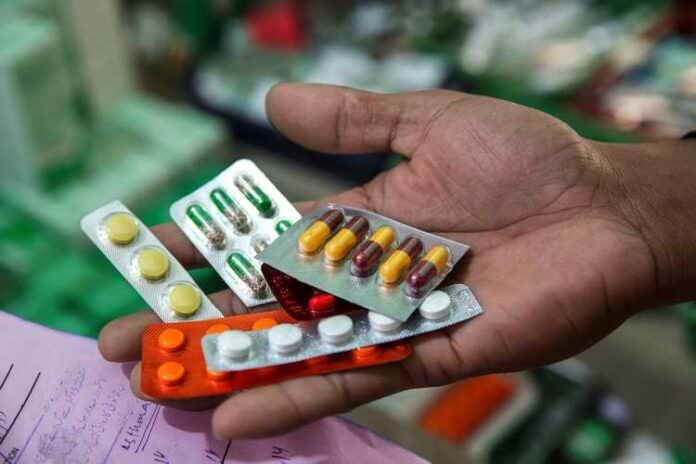
October 12, Colombo (LNW): Despite repeated assurances by the Ministry of Health and the State Pharmaceuticals Corporation (SPC) that Sri Lanka’s ongoing drug crisis will be fully resolved by 2026, the healthcare system is now facing an alarming paradox—an oversupply of certain medications alongside a continued shortage of essential drugs and surgical supplies in hospitals across the country.
This troubling development was revealed by Specialist Dr Chamal Sanjeewa, Chairman of the Medical and Civil Rights Doctors’ Trade Union Alliance, who described the situation as a “clear reflection of both administrative incompetence and political negligence” within the public health sector.
According to Dr Sanjeewa, nearly 100 pharmaceutical items—both essential and non-essential—are currently being stockpiled in several large state hospitals, with no clear mechanism in place for redistribution or utilisation. At the same time, vital medications such as IV Noradrenaline, Cefotaxime, Amikacin, Levofloxacin, and Clarithromycin remain in dangerously short supply. Surgical items, including suturing materials like prolene, nylon, and knee implants, are also critically low, severely hampering routine and emergency care.
The contradiction between surplus and shortage is not just a logistical failure—it represents a systemic collapse in planning, procurement, and oversight, Dr Sanjeewa pointed out. He attributed this failure to mismanagement by health officials dating back to the tenure of former Health Minister Keheliya Rambukwella, while also holding the current Health Ministry leadership and SPC accountable for failing to implement corrective measures.
Despite multiple cabinet directives aimed at resolving the crisis, none have yielded tangible results, he said. Instead, hospitals are now dependent on irregular emergency purchases at the regional level, which Dr Sanjeewa warned could lead to significant financial losses due to inflated pricing and lack of proper oversight.
He criticised the Ministry’s ongoing approval of decentralised procurement as a superficial measure to mask deeper administrative failures. He added that allowing ad hoc regional purchases for over a year has not solved the problem—it has only made it less visible. There is no central strategy, no competitive bidding, and no consistency in supplier engagement, Sanjeewa said.
Dr Sanjeewa further accused the SPC and the National Drug Regulatory Authority of operating in isolation, failing to engage constructively with suppliers or adhere to national procurement standards. He claimed that these bodies are functioning with a lack of transparency and accountability, exacerbating supply chain issues rather than resolving them.
The Alliance of Doctors and Civil Rights Trade Unions has raised serious concerns that procurement regulations may have been bypassed under the pretext of emergency cabinet approvals. Dr Sanjeewa indicated that the union is now preparing to initiate legal proceedings in relation to several alleged irregularities in the procurement and distribution process.